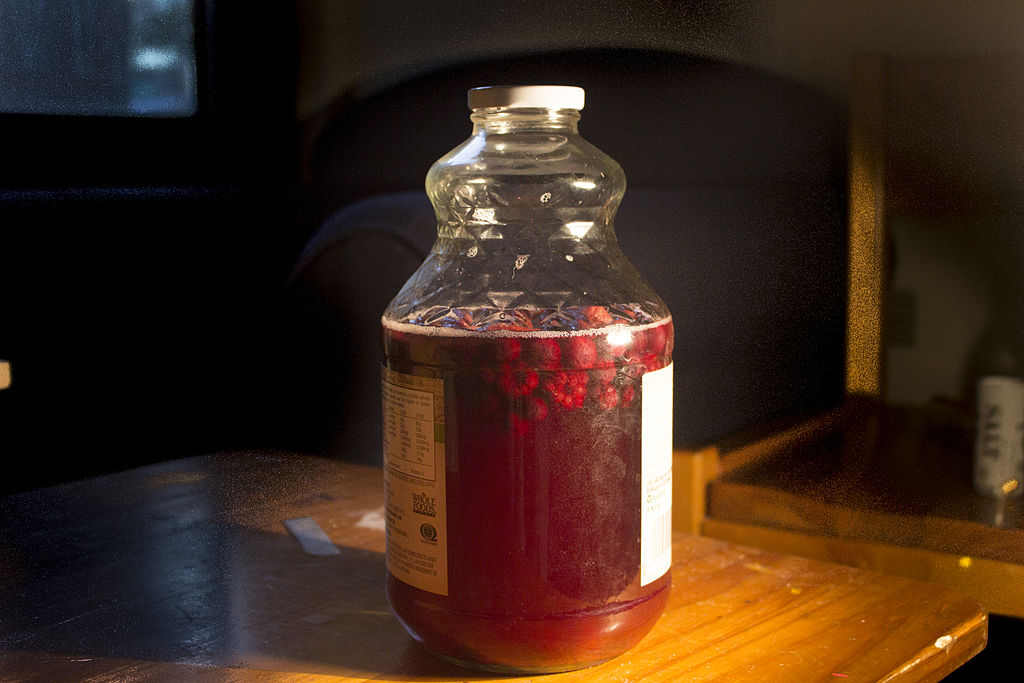When it comes to proper hydration, we frequently hear about the value of electrolytes in supplements and sports drinks. But what about Kombucha? This fermented tea is known for its probiotic advantages but does it also help with hydration and electrolyte balance?
Kombucha's Composition
Kombucha is a unique and fascinating drink that begins as a basic tea and sugar mixture that is improved by the addition of a symbiotic culture of yeast and bacteria, or SCOBY. Once the fermentation process takes place, this is when the magic truly begins.
The ordinary tea eventually changes into a deliciously bubbly drink that is not just somewhat sour but also packed with healthy components as the SCOBY works. The majority of the sugar is consumed by the SCOBY during fermentation, which transforms it into a variety of organic acids that give kombucha its distinct acidic flavor.
This process also leads to the production of a host of other beneficial components, including B vitamins and a spectrum of antioxidants, which contribute to overall health. But perhaps most interestingly, this fermentation dance also results in the creation of trace amounts of electrolytes like sodium, potassium, and magnesium.
Electrolytes in Kombucha

Though kombucha may not be renowned as a powerhouse of electrolytes, it does quietly contribute these vital minerals to our diet. In its subtly effervescent embrace, kombucha offers a modest but meaningful array of electrolytes such as sodium, potassium, and magnesium.
These essential minerals, present in smaller amounts than in specialized electrolyte drinks, play a pivotal role in maintaining the body's hydration balance. While kombucha won't replace high-electrolyte solutions for serious rehydration needs, its contribution to our daily electrolyte intake makes it a valuable player in the diverse symphony of a healthy diet.
Hydration and Kombucha
Kombucha's hydration potential is twofold. Firstly, it's a fluid-rich drink and contributes to your daily water intake. Secondly, the trace electrolytes present in kombucha can aid in hydration, especially when combined with a balanced diet. However, while kombucha offers a delightful twist to hydration, it’s essential to recognize its limitations.
It’s not a standalone warrior against dehydration or a full-scale replacement for high-electrolyte replenishments needed after intense workouts or in situations of severe fluid loss. Kombucha stands as a supportive ally in hydration, a tasty complement rather than a primary source of vital electrolytes.
The Sugar Factor in Kombucha
Navigating the sugar landscape in commercial kombucha requires a discerning eye. This trendy fermented tea undergoes a transformation where some of its initial sugar content is metabolized during fermentation. However, this doesn’t paint the whole picture. Many brands, in a bid to tantalize taste buds, introduce additional sugars or fruit juices post-fermentation, escalating the drink’s sugar levels.
This is where kombucha's hydration benefits encounter a potential stumbling block. Excessive sugar can paradoxically impair hydration by prompting the body to work harder to process it, ultimately leading to increased fluid requirements. Thus, for those seeking to leverage kombucha’s hydrating capabilities, the wise path lies in selecting varieties that tread lightly on sugar content. This mindful choice ensures that your kombucha experience supports, rather than undermines, your body's hydration needs.
A Balanced Approach
Integrating kombucha into a nutrient-rich diet offers a harmonious blend of taste and health benefits. While kombucha alone provides a modest boost in electrolytes, coupling it with other electrolyte powerhouses elevates your hydration strategy to new heights.
Consider complementing your kombucha routine with naturally electrolyte-rich foods like bananas or coconut water. This not only diversifies your nutrient intake but also amplifies the hydrating effects. Taking this synergy a step further, incorporating a specialized supplement like Key Nutrients' Electrolyte Powder can transform your approach to electrolyte balance.
Wrap Up: The Benefits and Limitations of Kombucha
Kombucha, with its probiotics and trace electrolytes, can be a flavorful addition to your hydration strategy. While it's not a high-electrolyte drink like some sports beverages, its unique composition offers a different angle to maintaining fluid and electrolyte balance. As with any dietary choice, moderation and variety are key. Incorporating kombucha alongside other hydration practices can contribute to overall wellness and hydration.

